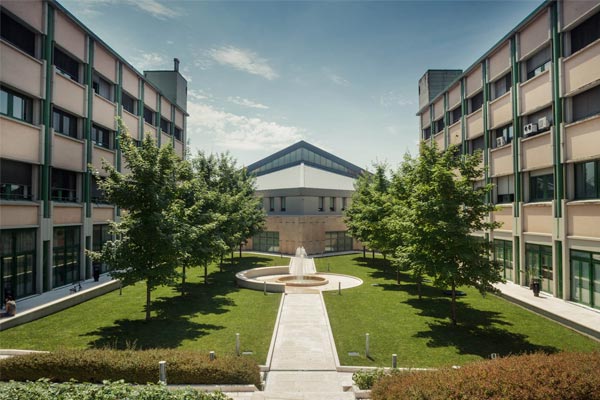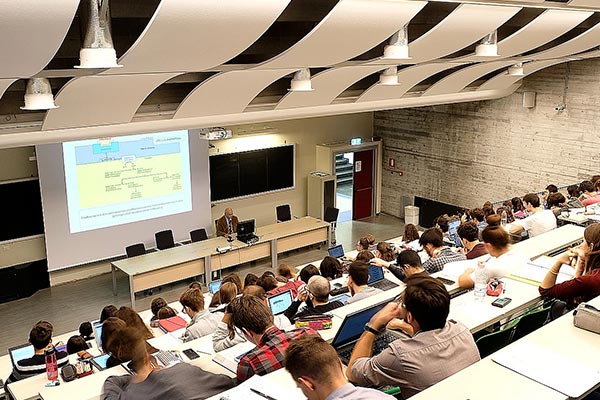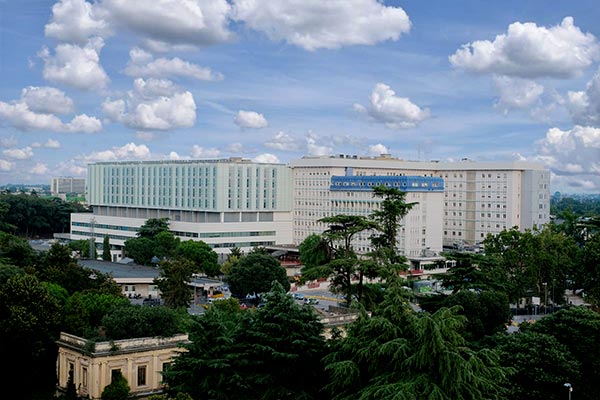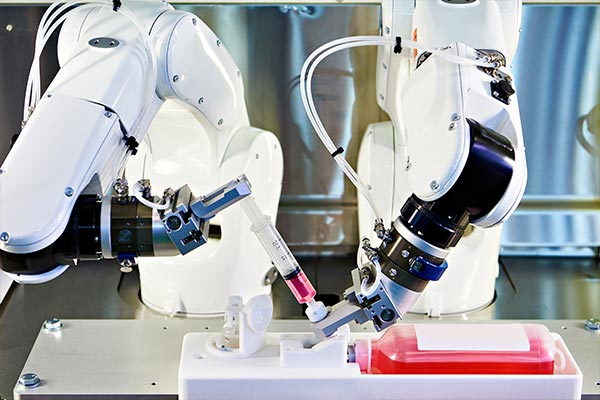Orario di ricevimento
lunedì,
Ore 16.00
- 17.00,
Si prega di concordare l'appuntamento.
- Curriculum
-
Gloria Menegaz è Professore Ordinario di Bioingegneria (IBIO-01/A - Bioingegneria) presso il Dipartimento di Ingegneria per la Medicina di Innovazione dell’Università di Verona dove dirige il BraiNavLab. E' stata Direttore della Scuola di Dottorato in Scienze Naturali e Ingegneristiche dal 2014 al 2019. Dal 2004 al 2007 è stata Prof. Associato presso il Dipartimento di Informatica, dopo aver trascorso tre anni (2004-2007) presso il Dipartimento di Ingegneria dell’Informazione dell’Università di Siena come Professore Aggregato quale vincitrice del bando Rientro dei Cervelli del MIUR (DM 20/03/2003 n. 501). Dal 2002 al 2004 è stata Prof. Assistente presso il Dipartimento di Informatica dell’Università di Friborgo (Svizzera), dopo un post-doc (2000-2002) presso il Lab. di Comunicazioni Audiovisuali (LCAV), dove era primo assistente, e presso il Lab. Di Bioimaging (BIG) del Politecnico Federale di Losanna (EPFL).
Ha conseguito il PhD in Applied Sciences (Docteur ès Sciences Techniques) presso il Lab. di Elaborazione dei Segnali (LTS) dell’EPFL nel 2000, la laurea in Ing. Elettronica con indirizzo Microelettronica, Optoelettronica e Strumentazione presso il Politecnico di Milano (1993) ed il Master in Tecnologie dell’Informazione presso il CEFRIEL-Politecnico di Milano (1995).
La Prof.ssa Menegaz ha un profilo altamente interdisciplinare. Le sue competenze scientifiche includono l'elaborazione di segnali e immagini, la compressione e la codifica dei dati (ha partecipato alla definizione degli standard MPEG3 e JPEG2000 ed è membro dell'AHG per JPEG DNA). All'Università di Verona la sua attività di ricerca riguarda lo studio della struttura e della funzione cerebrale utilizzando metodi di Intelligenza Artificiale Spiegabile applicati a segnali eterogenei (MRI, EEG) e dati genetici per l’identificazione di biomarcatori numerici.
E’ autore di piu di 160 pubblicazioni (Scopus) che includono riviste prestigiose quali IEEE Trans. on Image Proc., IEEE Trans. on Medical Imaging, Frontiers in Neuroscience, Human Brain Mapping, Journal of Neural Engineering, 2 capitoli di libri e due brevetti. E’ Senior Member dell’IEEE, Chair dello Steering Committee di IEEE-TMI e del Challenges and Data Collection TC di SPS, oltre che Vice Chair dell’IEEE Biomedical Signal and Image Processing Committee e area chair di numerosi congressi internazionali (IEEE ISBI, IEEE ICIP, EUSIPCO). E’ esperto valutatore di progetti per diversi enti internazionali tra cui la commissione europea (H2020, FP7, ESA), la European Science Fundation (ESR), il MIUR (PRIN, SIR, FIRB, RLM), l’ANR (Francia) e la Swedish Knowledge Foundation.
Nel corso della sua carriera ha ottenuto finanziamenti da diverse istituzioni internazionali per un totale di oltre 1 milione di euro. Da segnalare il programma Rita Levi Montalcini (MIUR, D.M. n.96 del 23.04.2001, 01/03/2004-28/02/2007) e il PRIN-2009, BrainFit: Brain tractography from diffusion imaging for radioterapico e pianificazione chirurgica come il PI nazionale, AI4Health: empowering neurosciences with eXplainable AI metodi (230000 euro), PI, finanziato ai sensi del e del MUR DM737/2021, il PRIN 2022 e il progetto INTELLI-MI per la RIR Tech4Life. Ha una ricca rete di collaborazioni internazionali tra cui la Georgia Tech University (TRENDS lab), INRIA (Francia), EPFL (Svizzera), la Queen Mary University (QMU, Londra) e l'University College London ( UCL).
ENGLISH
Gloria Menegaz is Professor of Bioengineering at the Dept. of Computer Science, University of Verona (Italy), where she leads the BraiNAVLab. She holds a PhD in Applied Sciences (EPFL 2000), a MSc in Electronic Engineer (1993) and a post-grade Master's in information technology (1995) (Politecnico di Milano, Italy). From 2000 to 2002 she was first research assistant at the Telecommunications Lab (LCAV) of EPFL, headed by Prof. Martin Vetterli, that she left to join the Computer Science Dept. of the University of Fribourg (Switzerland) as an Assistant Professor. In 2004 she was awarded the Rita Levi Montalcini grant by the Italian Ministry of University and Research (MIUR)(DM 20/03/2003 n. 501) and joined the Dept. of Information Engineering of the University of Siena (Italy) as an Assistant Professor. In 2007 she joined the Dept. of Computer Science of the University of Verona (Italy) as an Associate Professor in Computer Science and became full Professor in Computer Science in 2017 and Professor in Bioengineering (ING-INF/06) in 2021.
Prof. Menegaz is a Senior Member of the Institute of Electrical and Electronics Engineers (IEEE, 2017, valued member 1995-2017), and member of the IEEE Woman in Engineering since 2000. She is a member of the Signal Processing Society (SPS), Liason representative of the IEEE-SPS and Chair of the Steering Committee of the IEEE Transactions on Medical Imaging (TMI) , Member of the IEEE-SPS Challenges and Data Collection TC, and Vice-Chair of the IEEE Bioimaging and Signal Processing (BISP) Committee of the IEEE. She is also Member of the Medical Image Computing and Computer Assisted Intervention Society (MICCAI) Special Interest Group on Biomedical Image Analysis Challenges (SIG-BIAC), of the Ad Hoc Group (AHG) on Digital Media Storage using DNA (JPEG-DNA) and Observer for the DICOM WG-32 (Neurophysiology data).
She is Associate Editor for IEEE-TMI, and has been Guest Editor of special issues for different venues including the IEEE-SPM. She has been Vice-Chair for the FET-REA and the MSCA-IF for many years and Independent Expert for many international Institutions including European Science Fundation (ESF), SKF, Sweden, among others. She authored more than 160 publications in international journals and conference proceedings (Scopus) and two patent and has been chair, area chair and technical committee member of many international conferences, especially of the IEEE.
Prof. Menegaz holds a highly interdisciplinary profile, starting with a MSc in Microelectronics, focusing on physics, microelectronics and optics, moving to ICT topics with the post-grade MSc and then the PhD, where she has been working on compression and coding of multi-dimensional medical data with application to medical imaging, also contributing to the JPEG2000 standardization activities. During this work she also faced topics related to visual perception investigation and modeling, with emphasis on color vision contributing in the field of color naming in Italian language. After joining the University of Verona, she directed her research activity on neuroimaging, brain connectivity (structural, functional and effective), brain microstructure modeling imaging genetics and numerical biomarker discovery relying on classical and AI (statistical/machine/deep learning) with emphasis on explainable methods.
During her career she has obtained funding from several international institutions for a total of over 1 million euros. Worth mentioning are the Rita Levi Montalcini program (MIUR, D.M. n.96 del 23.04.2001, 01/03/2004-28/02/2007) and the PRIN-2009, BrainFit: Brain tractography from diffusion imaging for radioterapico and surgical planning as the national PI, AI4Health: empowering neurosciences with eXplainable AI methods (230000 euros), PI, funded under the and MUR DM737/2021, the PRIN 2022 and the INTELLI-MI project for the RIR Tech4Life. She has a rich network of international collaborations including Georgia Tech University (TRENDS lab), INRIA (France), EPFL (Switzerland), Queen Mary University (QMU, London) and University College London (UCL).








 menegaz
menegaz univr
univr
